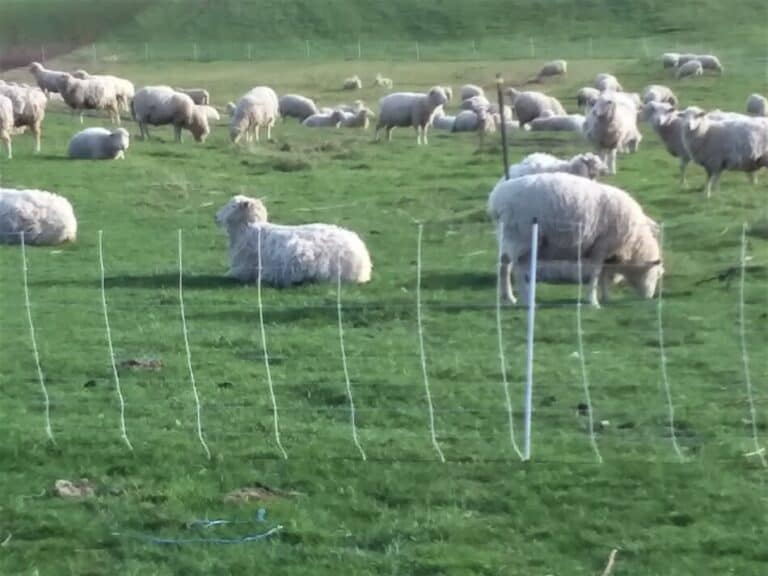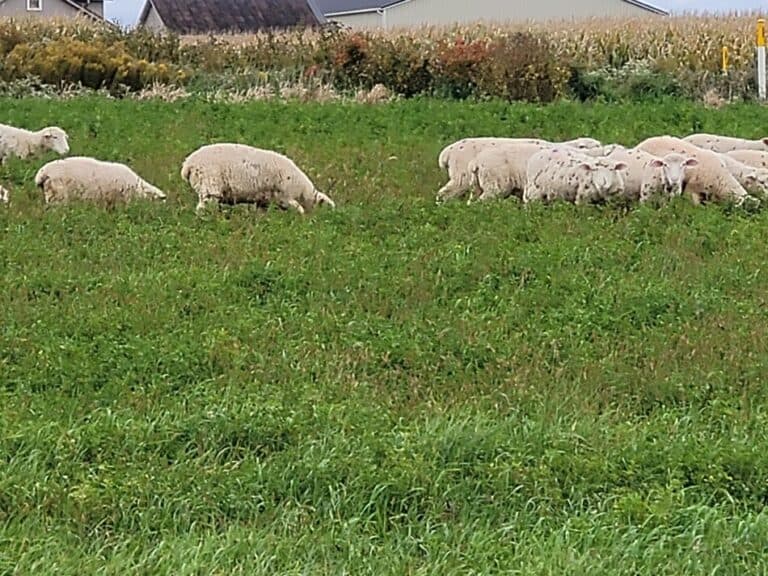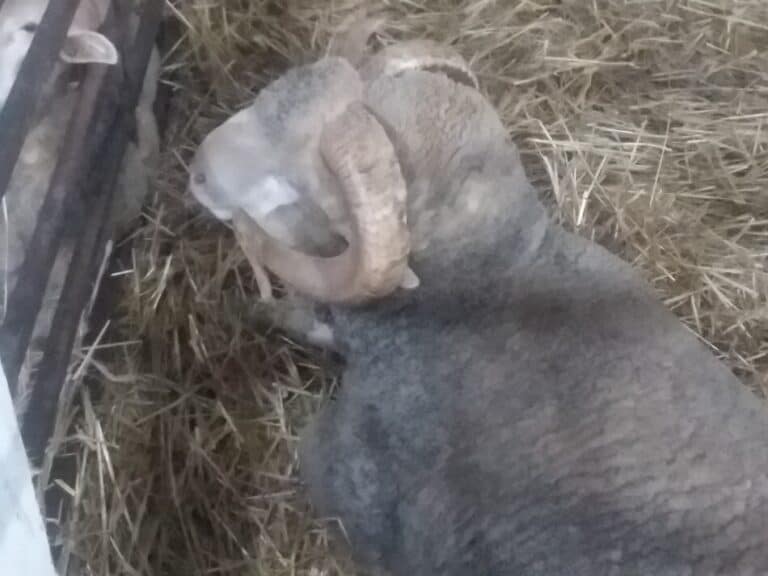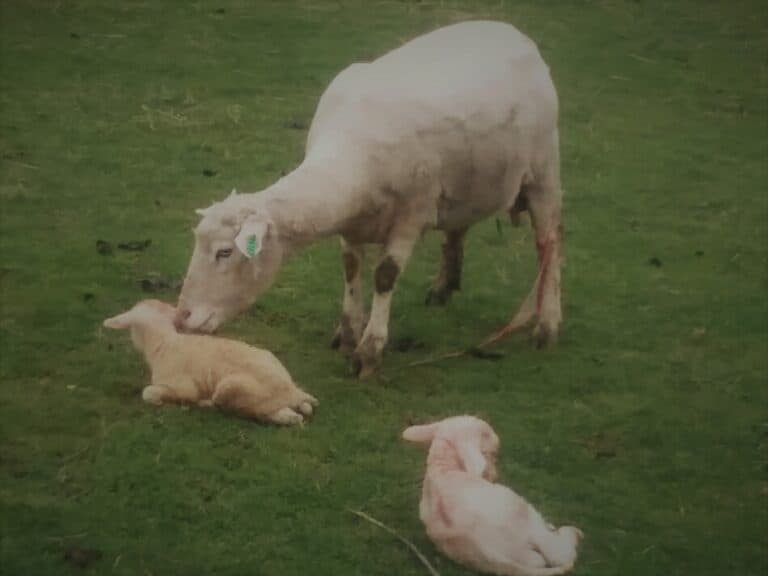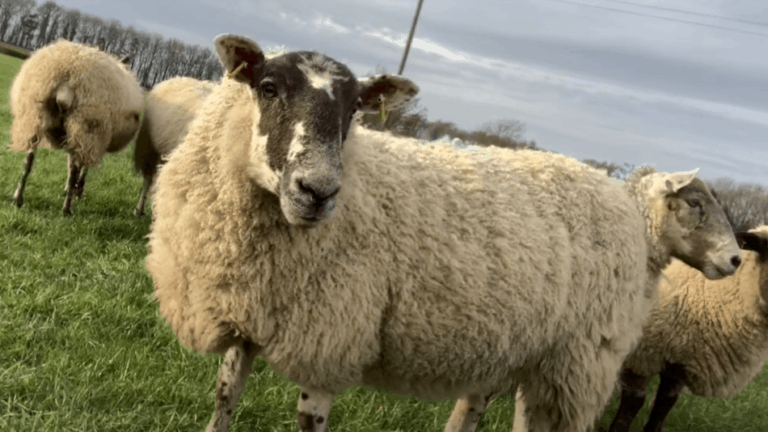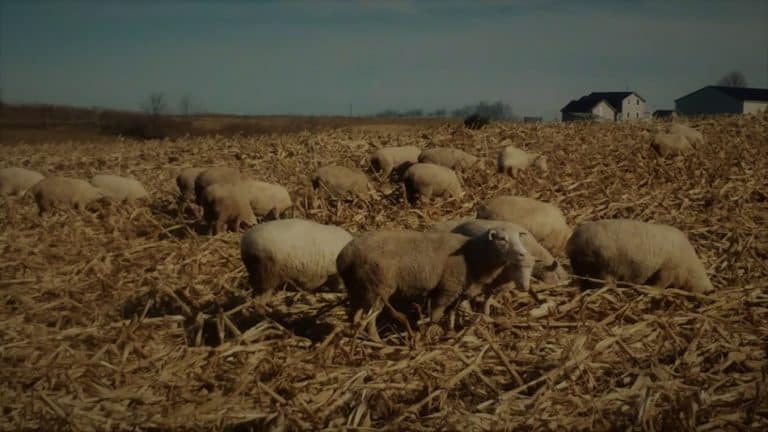Do Sheep Need To Be Fed Twice A Day?
In the vast majority of flocks, the sheep will need to be fed hay, at least in the winter when the grass is not regrowing. How often do sheep need to be fed?
Is once a day fine or would it be better for you and the flock for them to eat twice a day?
The main advantage to feeding sheep twice per day is that they are checked on twice per day. As long as sheep can freely access all of the forage and water they need for the day, they can be fed once per day. If your sheep are out of hay when you feed them next, give them more or feed them more often.
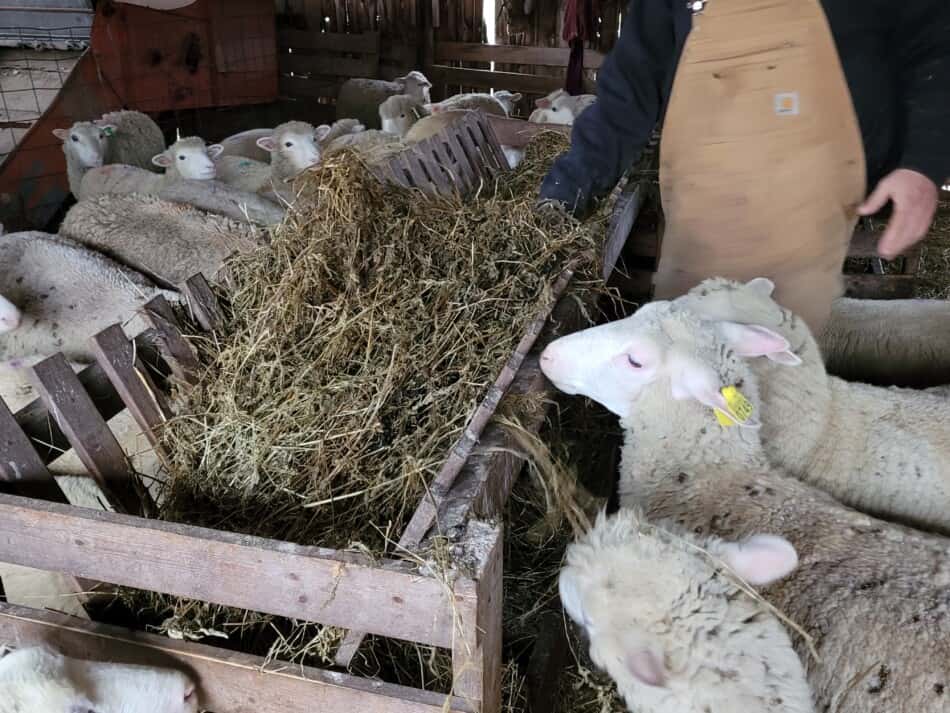
What Can Sheep Eat Other Than Grass? 6 Options gives you a few more feed options for your flock that you may not have thought of.
Sheep do not need to be fed twice a day
Your sheep do not need to be fed twice a day.
If they can have access to all of their daily ration by feeding them once per day and you see good results with the flock then once a day appears to be working for now.
The reason I mention “for now” is that the needs of your flock are going to change throughout the year.
Feeding them once a day in the fall when there is not a lot going on with the flock may be fine, this is what we do for the main flock.
They do not need much monitoring right now since they do not have lambs so feeding once per day is fine for this group. We still check in on them once or twice during the day, but feed in the morning.
Change your feeding plan as needs of the sheep change
Using the once a day plan for a more needy group would be a mess, for instance, showing up once a day in the spring during lambing is likely to result in problems getting out of control.
At lambing, the sheep need more attention than being around them once per day would provide. We may only feed once, or not at all if they are on pasture, but they will be monitored throughout the day.
Sheep inside seem to have problems when they run out of feed
We have noticed that sheep are more likely to have digestive problems when they run out of feed overnight then gulp down a bunch when you refill the feeder.
Maybe they just get a bit sick, maybe this ends up with you needing to call the vet.
Either way, it would save you and the sheep some stress if you were to head out to the barn more often and manage the sheep in a way that suits them better.
Part of the answer could be more feeders or put more hay in the feeders the day before so they don’t run out, instead of you going out there more, but that is asking for problems.
Are you checking your sheep often enough?
Are you checking your sheep often enough? Here are some things that indicate you need to check on the flock more often:
- sheep are out of feed when you get there
- sheep are out of water when you get there
- you continually show up to problems with the flock
Plan to check on your sheep more than once a day, if they need feed, fine, if they don’t fine. All you want to do is make sure that things are looking good with the flock.
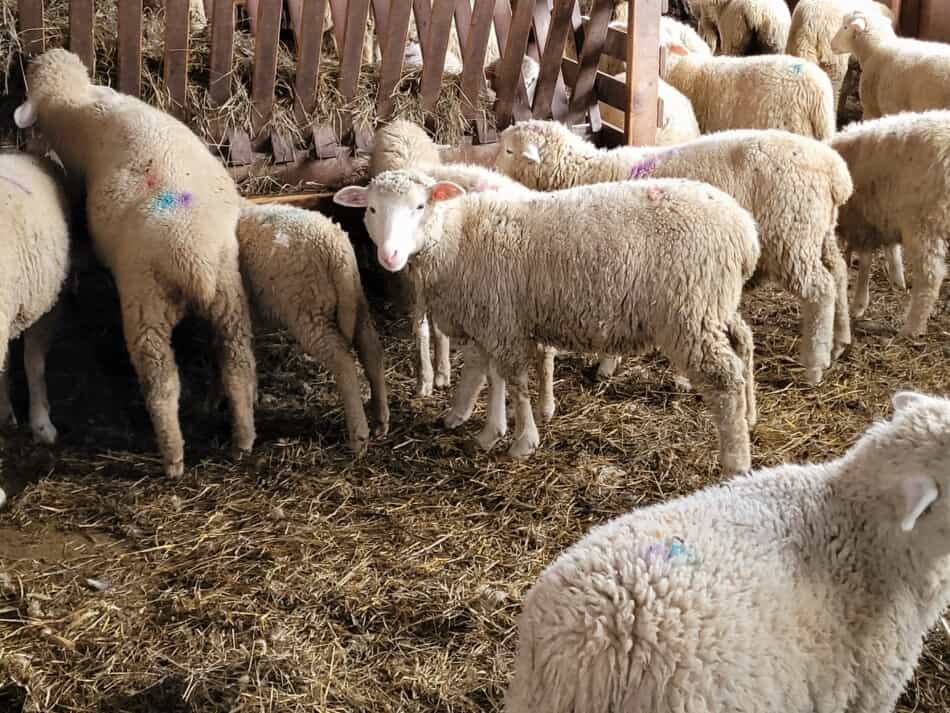
Splitting up ration for sheep inside
Sheep that are kept inside, especially those that are getting any sort of grain, will be easier to manage if they are given their feed in a split feeding rather than all at once.
Please note that feed can be concentrates, like grain or pellets, or forages like hay. Putting a few flakes of nice hay in the feeder should have the sheep trotting on over to take a few bites.
By splitting the feed, you are reducing the chances of one of the sheep pigging out and making herself sick.
You also have the advantage of seeing the sheep get excited over the feed, this is a great indicator of health.
A sheep that zooms over to the new hay is a healthy sheep, one that lollygags or doesn’t care at all is a sheep that needs looked at more closely.
Water is as important as feeding your flock
While this sounds so basic, check the water. The often overlooked other half of feed for all livestock, including sheep, is water. Without plentiful water, you are not getting the results from your feed.
Digestion requires a certain amount of water, the drier the ration, the more water the flock will need, either way, they’ll probably need some water.
But, you knew that, so why am I nattering on about this? Because clean, fresh water is needed, not just wanted, needed, for your flock to be healthy.
Is their water something that you would drink? If not, fix it. This is why you are checking the water and why I am going on about it. Water is so basic and easy to overlook but vital.
Clean water is also an easy thing to keep up with and make sure your flock has what they need to perform well for you.
If you are using water troughs, make sure the sheep are staying out of the trough. Once a few of them step in it, or worse yet stand in it, then the whole thing needs dumped.
We see this happen out on the pasture in the sticky days of late summer. A ewe or two will just hop on in the trough to cool off, which leaves a mess for anyone wanting a drink.
You’d be surprised how often this happens, but you have time to fix it.
Generally, the sheep will lay low in the heat, even getting up for a drink is more work than they are willing to do.
You just have to get out there and check the trough as it starts to cool off and you see the sheep moving out to graze.
If it’s a hot day and no one is drinking the water, dump the trough, something is wrong and the sheep need a fresh refill.
If you are using automatic waterers, make sure they are working appropriately. Are they clean and is the water level set high enough that the sheep, even the lambs, can get plenty to drink?
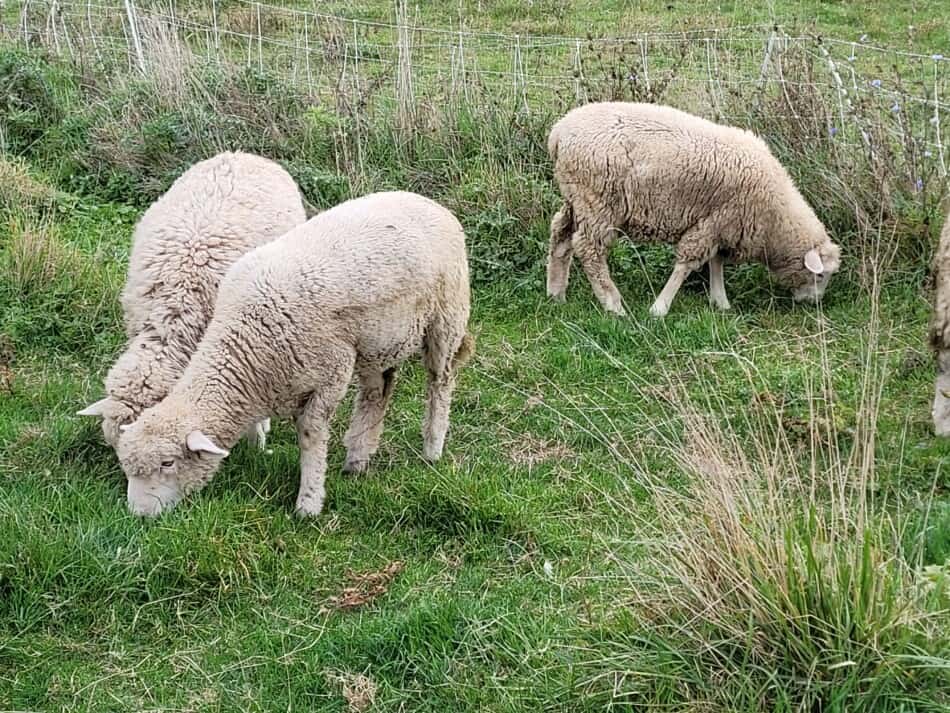
You need to spend time with the sheep
The biggest upside with feeding twice a day is that you see the flock twice a day. So often, we get busy with the rest of our lives and the sheep you meant to go out and check on, go unchecked.
If this ends up happening more than once, now you are meaning to do the management of your flock in the way that you promised yourself you would do it, rather than actually doing the work. Not good.
Keep yourself on target and go out and spend some time with those sheep.
Do I sound repetitive yet? If not, go back and reread some sections. Get out there and spend time with your flock, this is one of the things that feeding twice a day gets you, you seeing the sheep more!
Check group health
You need to get to know them and their normal patterns of movement and ways of acting so that you can spot abnormalities when they crop up.
The nature of sheep is working against you here, sheep hide things until they can’t keep up the act anymore. This means you need to take the time to observe the flock to spot any potential problems early.
If this is your first flock of sheep, you really need to spend some time out there just hanging out and see what’s what.
As you spend more time observing them, you’ll get better at seeing normal vs abnormal activities.
Other sheep articles you may be interested in:
Why Do Sheep Have Paint On Them?
Penn State Extension has Feeding The Flock, which gives you more specific recommendations based on the average weight of your ewes.
